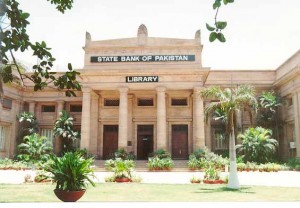Monetary Policy: State Bank of Pakistan lowers interest rate by 150 basis points to 12%
Tuesday, October 11th, 2011 7:59:50 by Hammad Malik
In an unexpected move, the State Bank of Pakistan reduced its discount rate by 150 basis points, bringing it down to 12% from 13.5%.
Although a rate cut was expected, no one would have expected it to be so intense. Analysts and market observers had emphasised that the SBP will not go beyond the traditional range of 50 to 100 basis points, but acting Governor Yaseen Anwar went beyond expectations to instil confidence among investors as well as commercial and investment bankers.
This decision comes at a time when volumes in financial markets are on the lower side and the economic activity has reduced considerably.
A discount rate is a rate at which the central bank lends to the commercial banks. This rate directly impacts the rate charged by commercial banks on loans. Banks are now expected to reduce their rates in a bid to expand economic activity as more individuals and companies will be in a position to borrow. The rate of borrowing is taken as a cost for business activity and the lower it is, the better it gets for businesses.
This decision is expected to encourage more investment in the stock market which, of late, has experienced a huge dip in terms of turnover and volume. With rates down, investors are likely to invest in the financial commodities as compared to keeping them in banks. Theoretically speaking, interest rates have an indirect relationship with bond prices. In this scenario, bond prices are expected to increase.
Muzammil Aslam, an economist at JS Global Capital, has termed this as a gamble. He stated that with a huge fiscal deficit in sight, it will be vital to see if this policy helps stimulate the economy or further dents its growth.
However, some analysts and businessmen have termed this as a political move to strengthen vote bank just before the election campaign kicks off. Sources believe that in order to please the business community, the government has deliberately reduced interest rates and there was little understanding behind this decision.
Anwar’s predecessors Shahid Hafeez Kardar and Salim Raza had kept the interest rates high in a bid to begin fiscal reform in the country. Both men believed that high costs of debt servicing will force the government to improve its tax structure and/or amend its approach towards government spending. This government has been accused of directing its funds towards current spending and little has been done for the developmental front.
This decision has also raised questions on Kardar’s resignation in mid-July. It now gives an impression that the government wanted to lower interest rates and thus forced Kardar out of office in order to make it possible.
Short URL: https://www.newspakistan.pk/?p=34

















